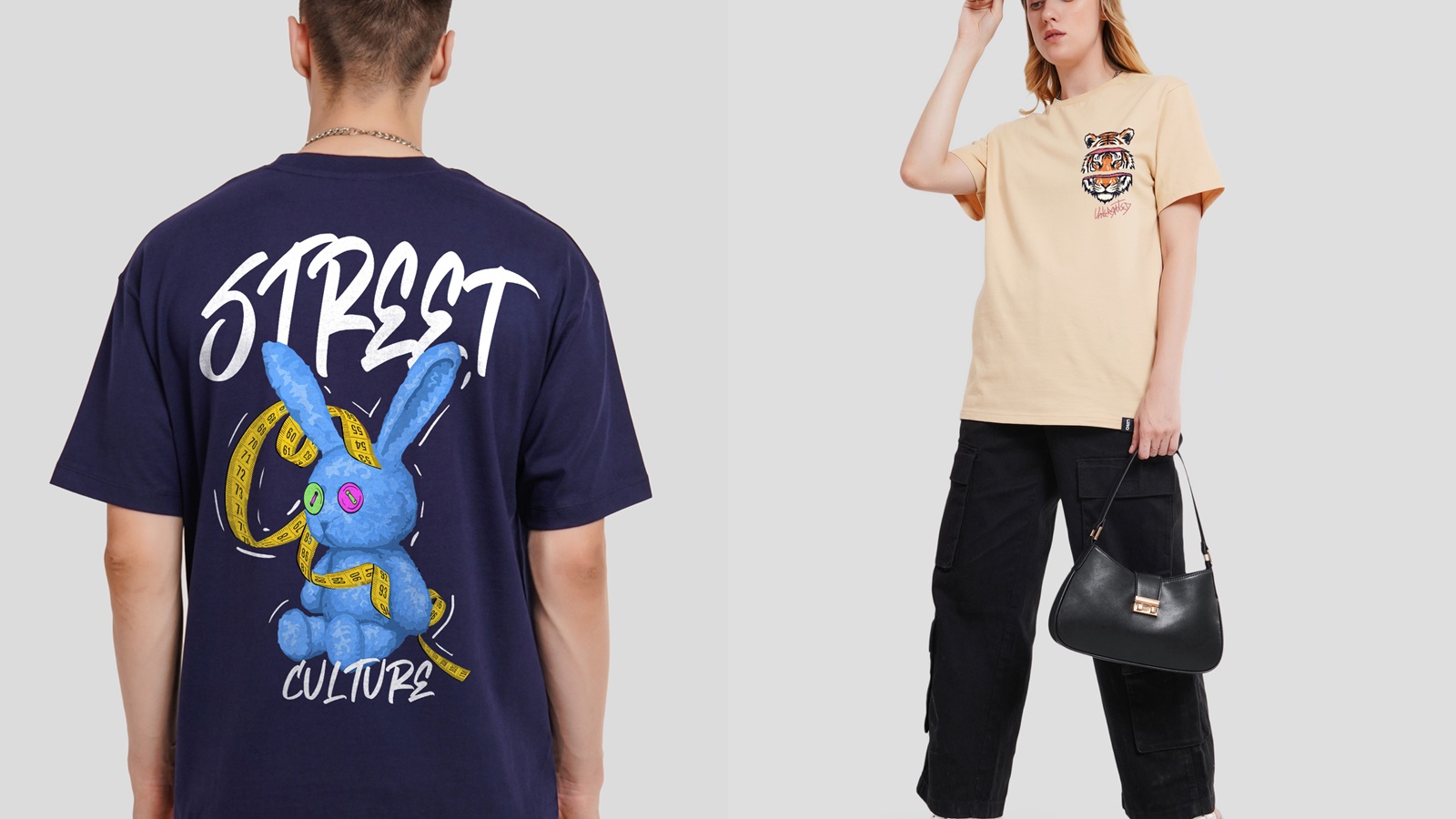Abhishek Teri and Kartik Anand were at a cozy coffee shop dreaming up a brand when Underrated Club was born. Earlier this month, their Pune-based brand entered the market with the promise of marrying fashion for young people with sustainable sourcing.
The name comes from the founders’ belief that “Gen Z is always underrated”. “Even at home, parents think that this person will not be able to do this when they are good at that stuff,” says Teri.
Underrated Club is looking to make a splash in the segment of streetwear-meets-luxury fashion, with an inaugural collection featuring shirts, T-shirts, denims and cargos, that range from Rs 750 for a regular tee and Rs 2,649 for blue jeans.
 The products are designed and manufactured in-house at Underrated Club. (Express Photo)
The products are designed and manufactured in-house at Underrated Club. (Express Photo)
“Today, if a college student wants to go to a party, they won’t be going into total party wear. They are conscious about how they look and this is where luxury in streetwear looks comes in,” says Teri.
The slogans on the tees reflect the contemporary lingo on campuses as well as memes, among other trends. Their first customers will come from the hundreds of educational institutes of Pune that buzz with young people.
According to a 2023 report, the Indian fashion market is estimated to reach $115-125 billion by 2025, with sustainability being one of the draws for many people.
 Underrated Club is looking to make a splash in the segment of streetwear-meets-luxury fashion, with an inaugural collection featuring shirts, T-shirts, denims and cargos. (Express Photo)
Underrated Club is looking to make a splash in the segment of streetwear-meets-luxury fashion, with an inaugural collection featuring shirts, T-shirts, denims and cargos. (Express Photo)
The products are designed and manufactured in-house at Underrated Club, where plastic is not allowed and water bottles are of glass. “We found it difficult to get eco-friendly material in India, so we had to procure a lot of stuff from Italy and other countries,” says Teri.
Underrated Club says its clothes are “breathable, moisture-wicking, and naturally antibacterial that keeps a wearer feeling fresh and confident all day”. There are eight fashion designers, of which five are in-house and three are international.
The company is bootstrapped and they are not looking for outside money. “What happens many times in the market now is that a company is highly funded from other ventures and they do not want to be profitable. What they want is just to get a higher valuation. We are out of that game. What we are focusing on is quality so that we can have returning customers and then we make money from their purchases. We are aiming for at least Rs 200 crore in revenue in the next three to four years,” says Teri.



